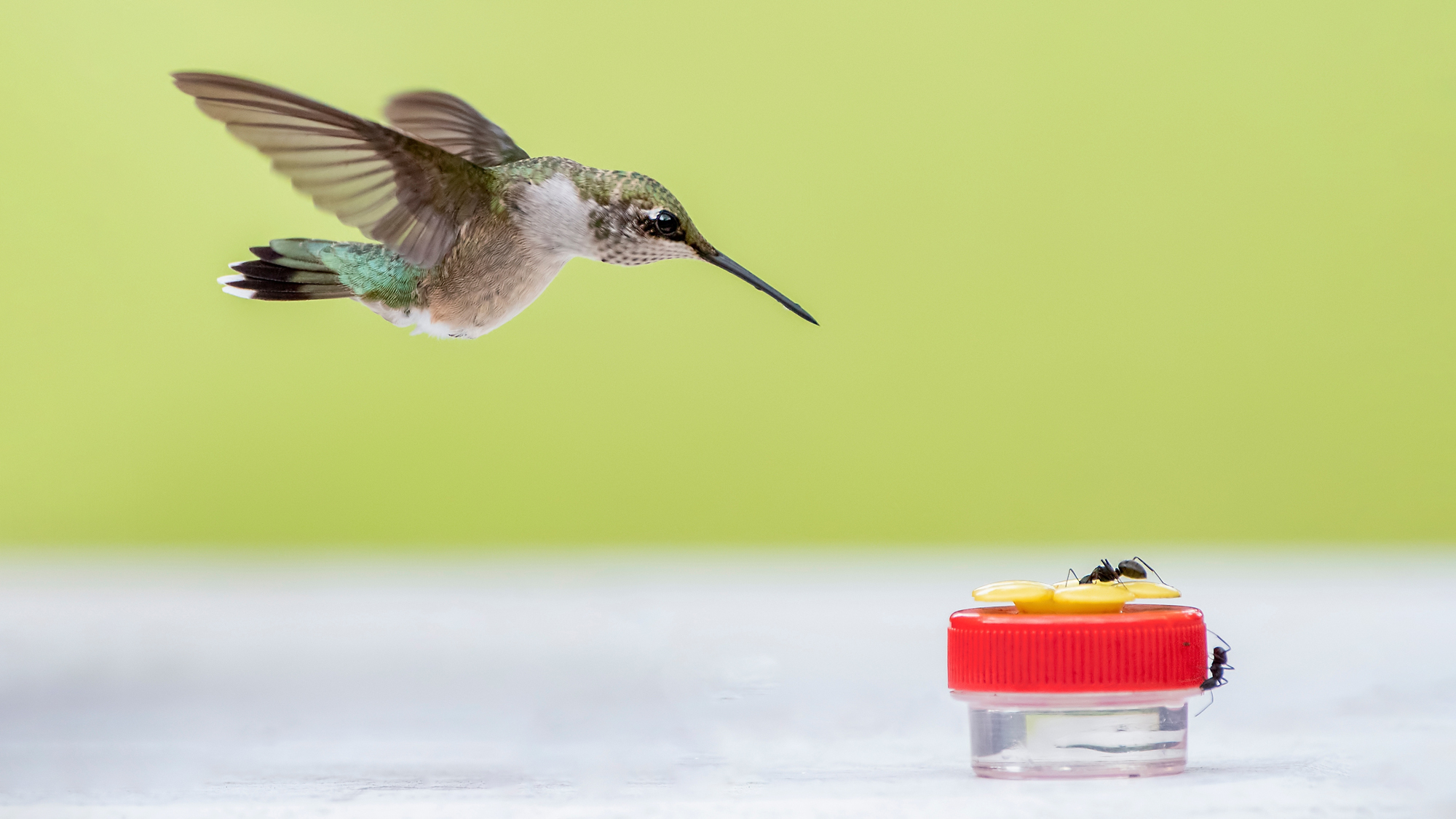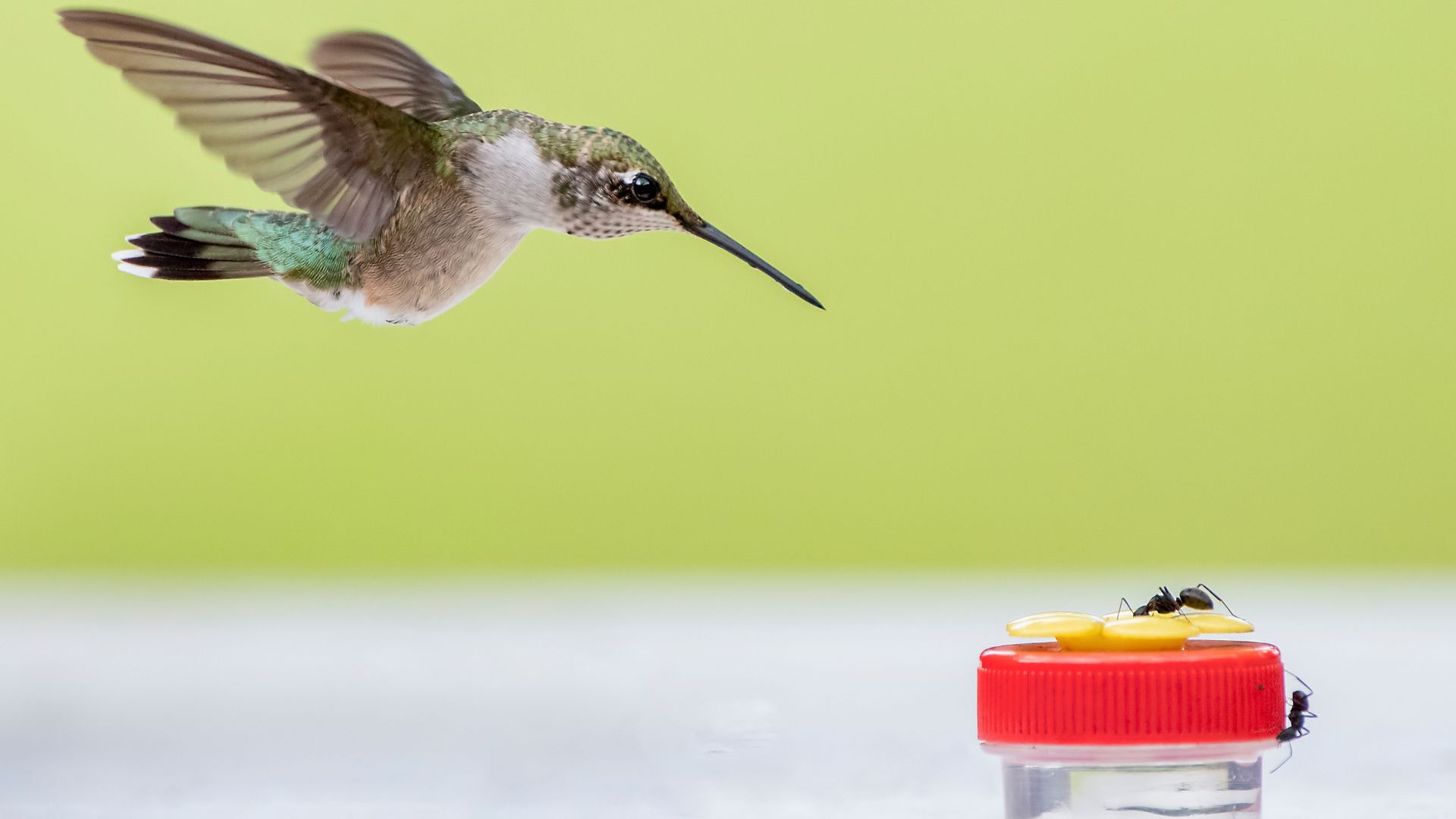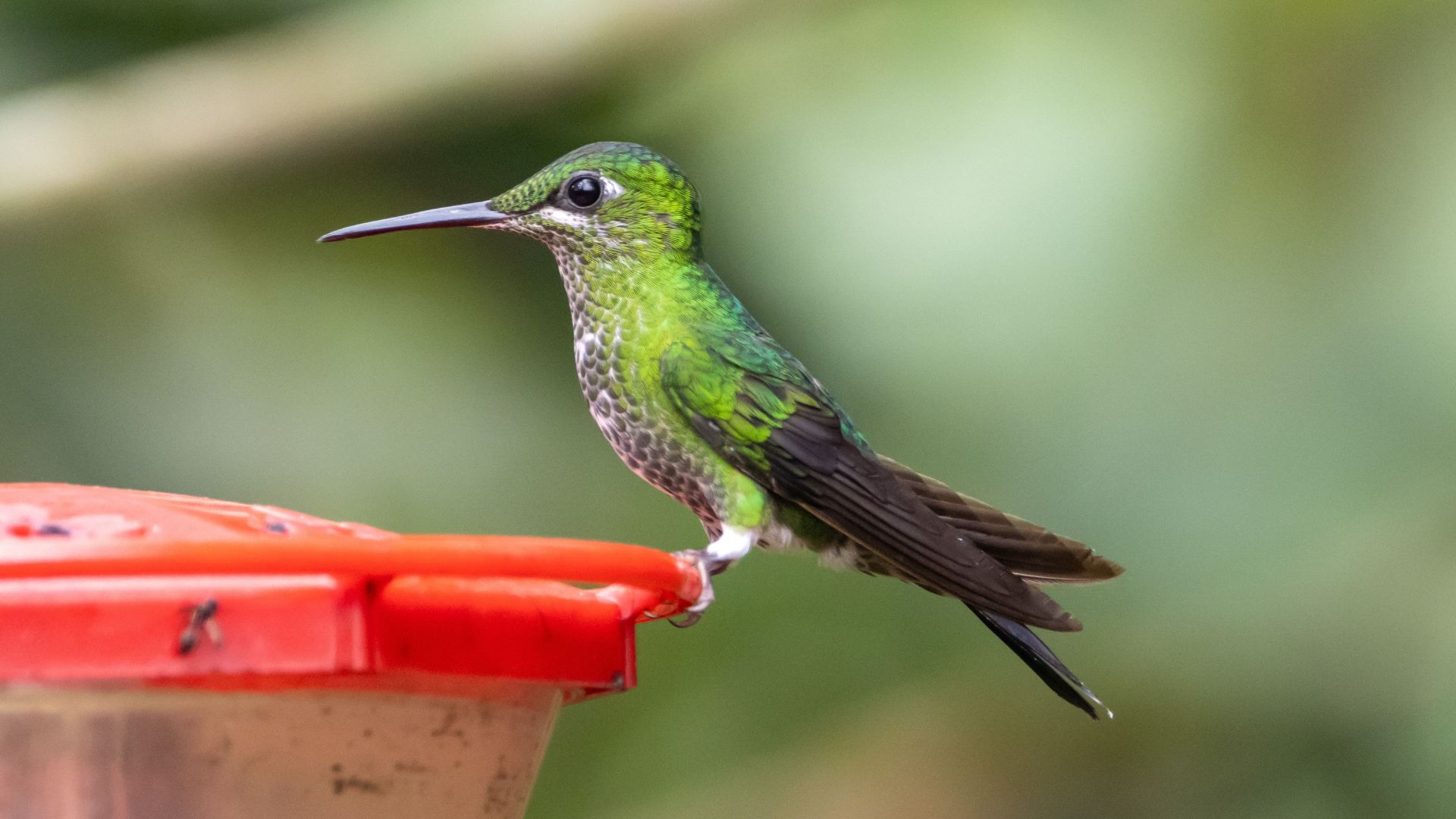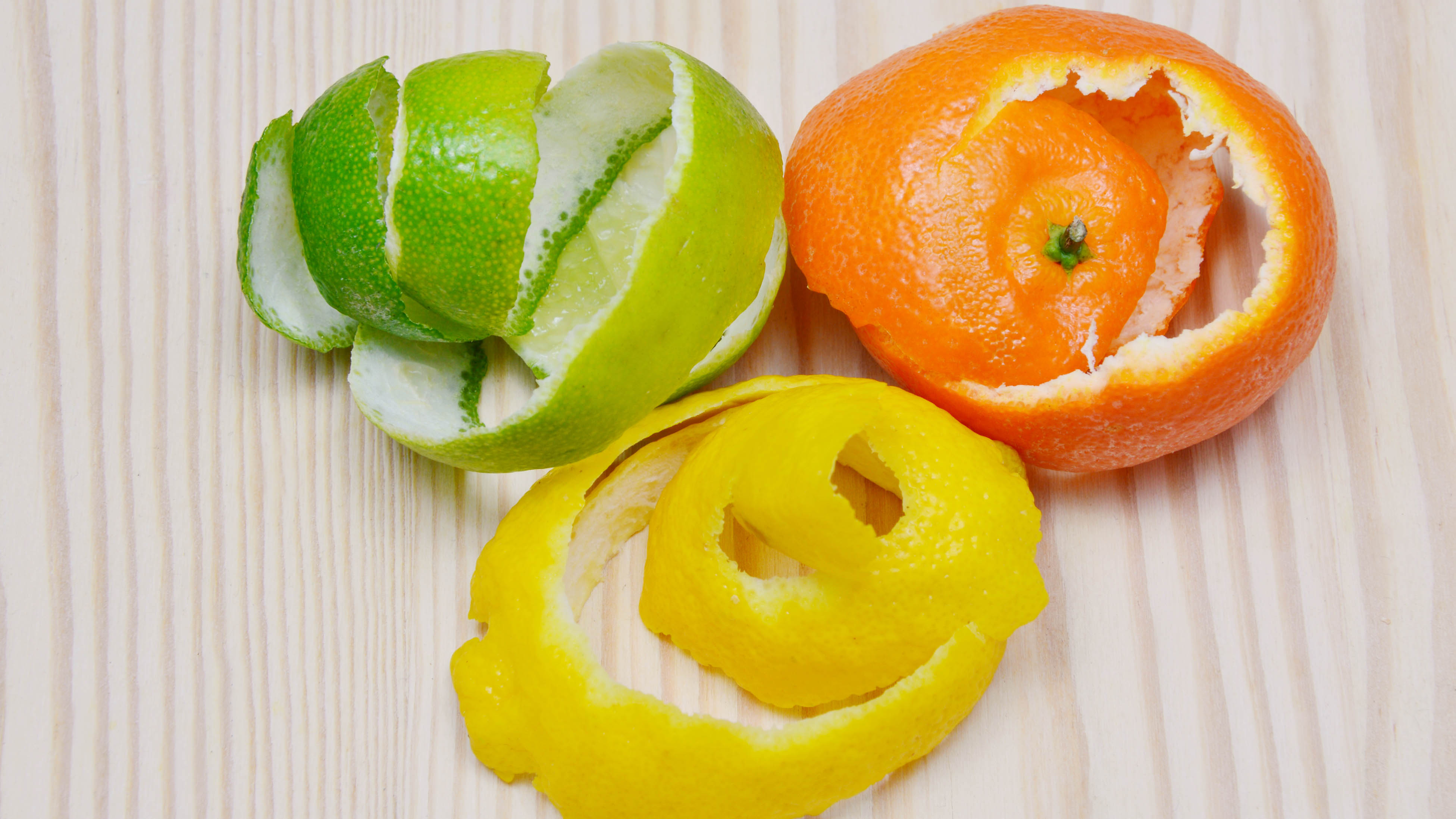
In addition to creating a beautiful outdoor space, a garden full of native wildflowers can attract pollinators like bees, butterflies, and hummingbirds. Adding a hummingbird feeder to your yard can encourage the tiny birds even further by providing them with an extra nectar source. But these feeders can also attract ants and other pests, leaving you to learn how to how to get rid of ants from hummingbird feeders without discouraging or harming the birds.
To discover the best way to keep ants out of hummingbird feeders, we consulted with several experts: Ryan Farley, CEO of LawnStarter; Steve Rosas, COO and president of Omega Environmental Services; Peter Rania, president and CEO of Waltham Pest Control Co., Inc.; and Bob Gilbert, board-certified entomologist at Blue Sky Pest Control.
Here, we share 5 tips for how to keep your hummingbird feeder ant-free without causing harm to any of the creatures involved.
How to keep ants out of hummingbird feeders
1. Make your hanger slippery

One of the easiest ways to keep ants away from your hummingbird feeder is to coat the hanger with a slippery substance. “To deter ants from hummingbird feeders in an eco-friendly way, coat the feeder poles or hangers in petroleum jelly or diatomaceous earth,” recommended Rania. “The slippery coating prevents ants from climbing while remaining non-toxic.”
Rosas offered a couple more options. “Apply petroleum jelly, olive oil, or dish soap to the outer rim and hanger,” he suggested. “The slick surface prevents ants from reaching the sugar water. Replace the solution after rain to maintain effectiveness.”
You can also replace the hanger with a fishing line, which will still support the hummingbird feeder but is impossible for ants to climb. A fishing line is a better option if you want to prevent ants and hummingbirds from getting oily substances on them, as this could harm them.
2. Consider your placement
Another way to keep your hummingbird feeder ant-free is to place it somewhere ants can’t reach. Rania suggested “Placing the feeder out of reach of accessible tree branches,” which can effectively keep ants at bay.
Alternatively, the feeder can be moved to a different location occasionally. Hummingbirds will still be able to find the feeder, but moving it around can deter ants since they won’t be able to leave scent trails to let their colony know about the feeder.
3. Build an ant moat

Adding an ant moat is one of the simplest ways to keep ants out of your hummingbird feeder. An ant moat is a small water basin hung just below the feeder. Ants can’t cross the moat and will be forced away from the sugar water meant for hummingbirds.
“[If] you're looking for a way to keep ants away from your feeders without causing harm, you can build an ant moat out of the bottom of a bottle or buy one commercially,” recommended Farley. “An ant moat attaches around the hanging portion of your hummingbird feeder. After it's filled with water, it's a very effective deterrent against ants climbing down to access the feeder.”
It’s best to change out the water in the ant moat frequently. Standing water can attract mosquitoes, creating a different pest problem in your backyard. And if you live in a dry area, the water in the moat can evaporate, allowing the ants to reach the hummingbird feeder.
4. Keep it clean
It’s vital to keep your hummingbird feeder clean for several reasons. Nectar can start to ferment if left too long and grow mold and bacteria that can harm hummingbirds. A dirty hummingbird feeder can also attract ants and other pests. It’s generally recommended to empty, clean, and refill hummingbird feeders at least once weekly, though more frequent cleaning may be required when the weather is particularly hot.
“To keep ants out of hummingbird feeders, clean the area around the feeder to remove ant trails,” recommended Gilbert. “Ants are recruiting workers to the feeder using pheromones, a type of chemical signal. Remove the pheromones and the ants won’t know the feeder is there.”
You may need to wipe down the feeder daily to keep ants away. “Wipe down the entire pole or the wire or string that the feeder is attached to with dilute bleach,” Gilbert advised. “This will repel any future ants from crawling on these surfaces while removing the existing pheromone trail, but it won’t last long. Retreat daily.”
Avoid using dish soap to clean the feeder, as it can leave a harmful residue for birds. Instead, use hot tap water or a weak vinegar solution. Before replacing the nectar, allow the feeder to dry completely. If you’ve made fresh nectar, allow it to cool before adding it to the feeder. And if you’re using refrigerated nectar, check that it’s at room temperature before refilling your hummingbird feeder.
5. Use natural repellents

There are several natural methods for repelling ants that you can implement to keep them away from your hummingbird feeder. Ants dislike the smell of mint, so planting fresh mint close to your hummingbird feeder can discourage them from approaching. Alternatively, spraying a mixture of one part distilled white vinegar to three parts water can deter ants since they detest the vinegar smell. However, vinegar can harm ants, so use this method sparingly.
Some other smells that ants hate include lemons, limes, oranges, and grapefruit. Placing citrus fruit peels around the hummingbird feeder can encourage ants to go elsewhere to feed. A barrier of salt or a spray of saltwater can also discourage ants.
Certain essential oils, like peppermint, tea tree, eucalyptus, spearmint, and cinnamon, are additional natural methods to get rid of ants. Just use them cautiously, as they may cause harm to hummingbirds.
Common mistakes to avoid
While keeping ants at bay is essential, ensuring that your methods aren’t harmful to hummingbirds is equally important.
“I tend to recommend against using any kinds of sprays or essential oils…around your hummingbird feeders since these are small birds with pretty delicate systems,” Farley advised. Similarly, avoid using pesticides close to the hummingbird feeder. If a bird ingests pesticide, even accidentally, it can harm them.
If you’re applying any greasy solution like petroleum jelly to the outer rim or hanger of the feeder, ensure none gets on the feeder itself. If a hummingbird makes contact with an oily substance, it could lose its ability to regulate its body temperature, which can be deadly. Oily substances can also be deadly for ants, so it’s best to avoid this option if you’re looking for a humane ant-repellent method.







